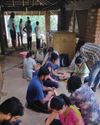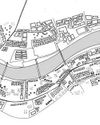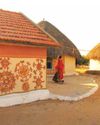Constantly pushing for a new architectural order, Cecil Balmond OBE of Balmond Studio, translates abstract concepts into tangible reality, employing a stunningly visual application of architectural theory. In this interview, Balmond reflects on his architectural journey, the idea of cities in the context of globalisation, and the permeable boundaries between art, engineering, and architecture – he reiterates his belief that today’s architects must attempt to reflect the knowledge of a multitude of disciplines, combining the insights of engineers, scientists, artists, craftsmen, philosophers, and entrepreneurs.

An internationally renowned artist, architect and engineer, Balmond transcends the conventional boundaries of discipline working in the crossover between art and science. In this dynamic area, he has re-invented the very concept of space, transforming the meaning of geometry, form and structure. Balmond’s design approach engages inner organisational systems - a process based on rigorous research. Balmond creates alternate theoretical models and negotiates new emergent forms by experimentation.
Before setting up Balmond Studio in 2011, Balmond was Deputy Chairman of Arup. He was also Chairman of Arup’s European Building Division, and ran the critically acclaimed design group, AGU (Advanced Geometry Unit).
In addition to his own studio design work he has collaborated with several key architects.
IA&B: Can you share with us your journey through the years while discovering your commitment towards the field of Engineering and Architecture?
Dr Cecil Balmond: My journey has always felt like a progression along a consistent trajectory; a natural, unpredictable path shaped by my own approach, outlook, and philosophy. A journey often implies a chronology – a definitive starting point, a fixed direction, and a tangible end. Yet, in my experience, at times there were multiple paths to choose from, often leading to new destinations.
I was born in Sri Lanka, but my family and I moved to Nigeria when the civil war broke out. We moved again to the UK and I enrolled in the University of Southampton’s engineering department. Back then I actually wanted to be a classical guitarist; I spent my nights playing in the local bars. However, I knew it was an unstable existence. I saw engineering as a conventional career choice and it focused on one of my principal passions – mathematics.
この記事は Indian Architect & Builder の June 2017 版に掲載されています。
7 日間の Magzter GOLD 無料トライアルを開始して、何千もの厳選されたプレミアム ストーリー、9,000 以上の雑誌や新聞にアクセスしてください。
すでに購読者です ? サインイン
この記事は Indian Architect & Builder の June 2017 版に掲載されています。
7 日間の Magzter GOLD 無料トライアルを開始して、何千もの厳選されたプレミアム ストーリー、9,000 以上の雑誌や新聞にアクセスしてください。
すでに購読者です? サインイン

Interlacing Perspectives
‘Meraki-2019’ A visionary Seminar series presented by Dr.Baliram Hiray College of Architecture, Bandra(East), Mumbai.

Facilitating A Community Through Architectural Practice
The humble, self-designed, self-built and organically planned home built by the majority of the world population rarely gets appreciated and critiqued as a viable lesson in architectural design.

The Art Of Solving Problems Creatively
The practice of architecture is perhaps incomplete without the complement of a variety of other arts.

Upcycling towards a playful tomorrow
Play is like the middle child, often forgotten, and always taking a back seat. For young kids, play can simply be running around, armwrestling with friends, building sandcastles on the beach, or singing popular music tracks in the shower.

Balancing The Poetics And Pragmatism Of Everyday Design
Humanity is faced with an oxymoronic crisis. The crisis involves the earth, the environment, impending looms of climate change, deforestation, loss of species, dwindling resources etc.

Just Give Me Some Space: Discussions And Beyond
Just Give Me Some Space (JGMSS) is Suha Riyaz Khopatkar’s debut book that paints a portrait of the dynamic life of an architecture student.

The Next In Vernacular Architecture
Architecture has become a capitalist.

Rethinking The Future: Architecture And Its Education
“I want to be like animals, the bird makes a nest in one or two days, the rat digs a hole in a night, but intelligent humans like us spend 30 years to have a house, that’s wrong.” - Jon Jandai

Uniting The Human-Scale With The City-Scale
London-based architect Usman Haque is famed for his interactive architectural systems, and for his exploration of newer, more effective ways of creating human engagement and interaction through his designs. Indian Architect & Builder caught up with him, to quiz him on a variety of topics such as his journey as an architect, his inspirations and philosophies, architects using the digital revolution to their advantage, and more!

Framing spaces
Almost every architect also doubles as a photographer or at least an enthusiast.